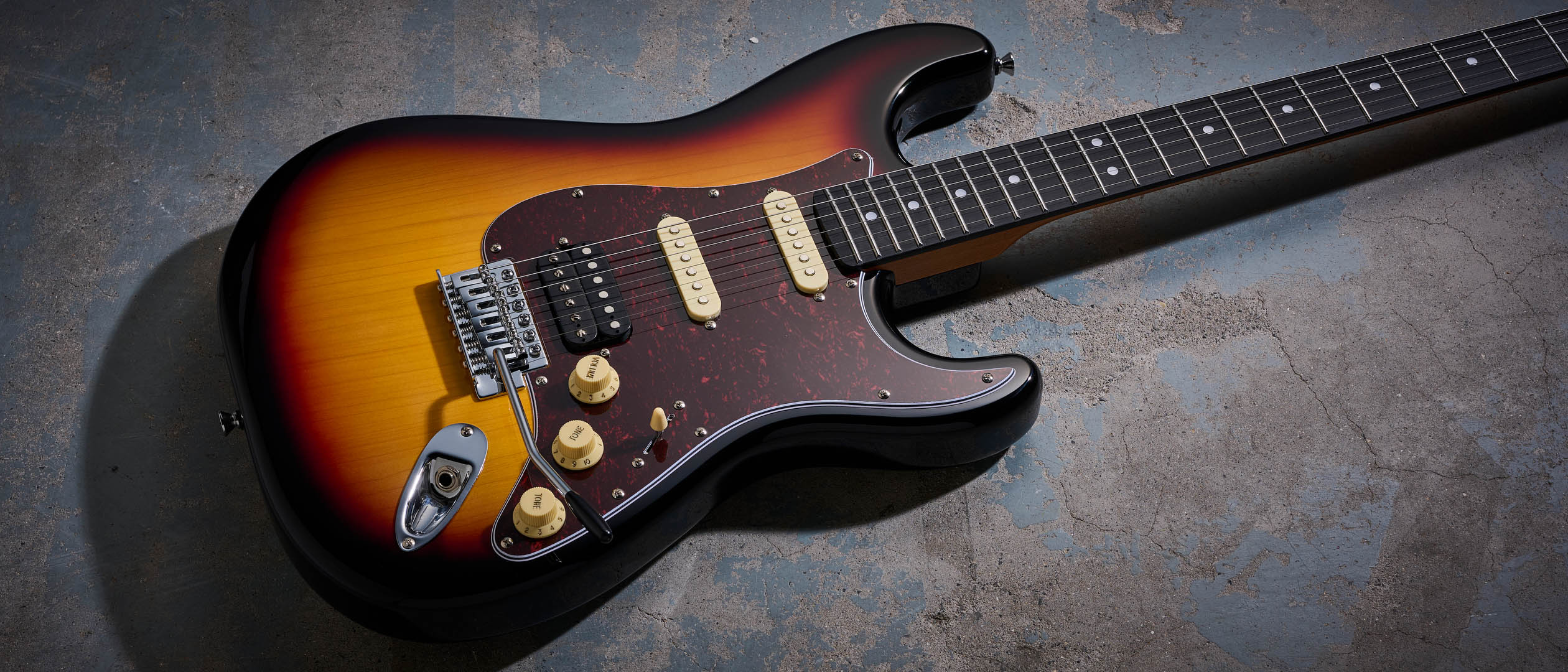Interview: The Winery Dogs — Richie Kotzen, Billy Sheehan and Mike Portnoy — Talk Debut Album, Gear, Technique and More
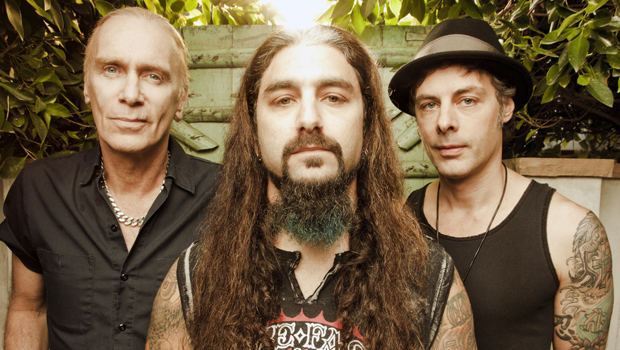
Are the Winery Dogs a supergroup? Well, yes.
With guitarist Richie Kotzen (Mr. Big, Poison), bassist Billy Sheehan (Mr. Big, Niacin) and drummer Mike Portnoy (Dream Theater, Adrenaline Mob) in the mix, how could they be considered anything else?
Just don't use that moniker around the guys in the band.
"Most supergroups are short-lived and usually have internal problems," Sheehan said during my recent conversation with all three Winery Dogs. "We didn't get together to try to capitalize on what we've done before. We wanted to do something that was straight out of the box."
The guys prefer to be considered a classic power trio, and they've already released a powerful trio of music videos in advance of their debut self-titled album, which will be released July 23 via Loud & Proud Records. The disc was produced by the band and mixed by Jay Ruston (Anthrax, Stone Sour, Steel Panther).
I recently sat down with Kotzen, Sheehan and Portnoy to talk band origins, gear, the new album and the secrets behind Kotzen’s sound and hybrid picking style.
GUITAR WORLD: How did the Winery Dogs come together?
Get The Pick Newsletter
All the latest guitar news, interviews, lessons, reviews, deals and more, direct to your inbox!
Portnoy: Billy and I had been working on a separate project with John Sykes, but it was hard to get that project moving along. We both decided we didn’t want to wait, but we also wanted to continue working together and create a classic rock power trio.
Sheehan: Mike and I were ready to go and wanted to move quickly, whereas John [Sykes] wanted to take a more methodical approach to things. There are merits to doing things both ways, but in the end we decided to move on and try something else.
Portnoy: I should clarify that everything we were doing with Sykes was completely different from this project. Everything that's part of the Winery Dogs' album is strictly the three of us, and that's where it began. Once we got together with Richie, it was a complete collaboration. All of this music poured out of us naturally.
How and when did Kotzen enter the picture?
Portnoy: Billy and I began thinking about a guitar player/singer combination we could work with, and that’s when my good friend Eddie Trunk [That Metal Show] mentioned Richie, and it was the perfect suggestion.
Sheehan: I've worked with Richie a lot over the years. Not only in Mr. Big, but afterwards. I'm still not sure why I didn't think of him. I guess he was just such the obvious choice that it escaped me [laughs].
What do you like most about Kotzen?
Sheehan: There's a thing with Richie's playing that makes you sit up and take notice. I remember he once did a short stint with two great jazz cats [Stanley Clark and Lenny White] and started adding a little bit of jazziness into his playing. In the solo on "Not Hopeless" [from the new album], you can almost hear the pads closing on a tenor sax in his playing. Listen to that song and think "sax" and it’s almost like you can see a guy with a tenor [sax] sweating away in some little club.
Portnoy: Richie’s the true triple threat. Not only is he an incredible guitar player, but he’s also an amazing singer and songwriter. He’s one of the most well-rounded guitar players I’ve ever worked with.
Some people have called this project a supergroup. Would you say that’s an accurate assessment?
Sheehan: I don't think so. Most super groups are short-lived and usually have internal problems. We're pretty easy going whenever we're together. The supergroup title is also a high-pressure name to live up to. We didn't get together to try to capitalize on what we've done before. We wanted to do something that was straight out of the box.
[Kotzen joins the conversation]
Where did the name Winery Dogs come from?
Kotzen: What’s funny is that in the collaboration of making this record, everything was easy and just happened so naturally. The hardest thing was actually coming up with a band name [laughs].
I had suggested the name the Winery Dogs. They were dogs that were used many years ago to guard vineyards and keep stray animals from screwing up the vines. I thought that was cool because in a weird way, it parallels what we're doing musically. Many artists these days have gotten more into programming and using samples.
Even though some of those new records are cool and creative, they're not necessarily made by musicians in the sense of what we know a musician is capable of doing on an instrument. So, where winery dogs are protecting the vineyard, we're protecting (or promoting) the old-school thought of making a record by playing an instrument and not sampling or tuning your vocals.
Portnoy: I think for Richie, the name also conjures up “old school” feeling; like "the Rolling Stones" or "the Black Crowes." It had that kind of a feel to him.
Sheehan: We're the ones waving the flag for people who want to really play and sing as opposed to faking it. Holding down the fort against the onslaught of the artificial.
How did the songs on the new album come together?
Portnoy: Generally speaking, 12 of the 14 songs we wrote and recorded were completely collaborative; it was literally just the three of us in a room playing in a circle 10 feet from each other. It was all done very live and very old school.
Kotzen: The three of us got together at my studio and started throwing around some ideas. Then we ended up demoing a few of those arrangements, and after Mike and Billy left, I sat down with what we had recorded and came up with some lyrics and melodies and sent it back to them. The guys really liked them, so we decided to try a few more. We did that a few times and ended up developing those ideas into finished songs.
Sheehan: Sometimes we'd begin by just coming up with a cool groove or chord change. Then we'd go back and revisit and reconfigure it. The good thing about writing in a group situation is that even if you don't have an idea, someone else might have one and that will spark something within you. Brick by brick we put it all together. We went in with nothing, and came out with an album.
Maybe you can discuss a few of the individual tracks on the album. Let's start with "Elevate."
Kotzen: "Elevate" was an interesting scenario. I originally only had the crazy guitar riff and verse completed. It had lyrics in there too, but the song went to an incomplete chorus that had no words. I remember playing the song for the guys, and they both really liked the riff and verse, but weren't too keen on the chorus part.
Then I played them "I'm No Angel," which at the time had two different versions. The first version is the one you hear on the album, but I also had an older version that had a completely different kind of chorus that I didn’t feel worked right with the song. When I first loaded the file to play for Billy and Mike, I brought up the old version of the song by mistake.
Mike heard the old chorus and agreed that it didn't work for “I'm No Angel,” but he knew we had to use it for something. That’s when he suggested combining it with the riff and verse from the song that had the incomplete chorus. That's how "Elevate" was written. It was a Frankenstein of two separate songs we glued together.
I was just going to mention that one — "I'm No Angel"
Kotzen: “I’m No Angel” is one of those relationship songs where clearly one person is bad news, but the other person just wants to continually stay in the bad situation. Finally, the bad person says, "Look, why are you allowing me to beat you up mentally? Wise up, and get out!" [laughs].
Let's discuss "Damaged."
Portnoy: "Damaged" has a great '70s AOR feel to it. That song and “Regret” were two Richie brought in that we didn't want to mess with. They were perfect, and we basically recorded them as is.
Speaking of which, how about "Regret"?
Sheehan: Mike's groove on that song just kills, and it’s one of my favorite pieces on the record. Mike's known for his bombastic, amazing playing on the drum kit, but to hear him pull back and dig into that groove under the piano and that soulful lead vocal just kills. It was a chance for him to do something he might never had done before.
Richie, was there any added pressure on you having to sing as well as play?
Kotzen: The idea of singing with Billy and Mike is completely consistent with what I've been doing for the last 20 years. My whole focus on music really shifted after my first record. In 1989, I released an instrumental record and immediately realized my heart really wasn't into just being an instrumentalist.
I'm a rock guy and as a teenager was always playing in bands with singers. That's what I wanted to do. So for my second record, my intent was to make an album that also had vocals and remember sending off demos to my record label with various singers on them. The label loved the songs, but didn't respond well to the singers.
That’s when they suggested that I sing. I started thinking about it and began listening to some of the singers I liked (Paul Rodgers, old Rod Stewart) and wound up singing lead vocals on it. On every record I've done since [with the exception of a few project ones], I've been playing and singing.
Richie, what’s your current gear setup like?
Kotzen: I've a signature model Fender Telecaster since 1996. It’s the guitar I play and have been using for the majority of my career. As of the beginning of this year, the guitar is available and people can go into their local music store and buy one or order it.
For amps, I use Fender as well. I've been going back and forth between the Vibro-King and the Vibrolux. The main reason I started using the Vibrolux has to do with the way the footswitch works. The Lux allows you to turn the reverb and tremolo on and off, whereas the Vibro-King doesn’t give you that ability from the footswitch. I really like that feature. On the record it's those two amps, along with a Bassman I used for “The Dying." When the heavy guitars come in, it's the Vibro-King and the Bassman linked together. It created a cool sound that blended nicely.
Tell me a little about how you developed your hybrid fingerpicking style.
Kotzen: As far as my technique goes, I've always used a pick, but I’ve also incorporated two of my fingers as well. The way it really came about started six years ago when I was on tour in Brazil. I was playing with the same guitar pick I always used, but it just didn't feel right. I didn't like what I was doing and decided I had to change something. I only had one night until the next show and knew I couldn't just sit in a hotel and practice to try and change something in just a few hours.
So I decided that if I put the pick down, it would force me to change my approach. And it did. That next night was great, and I played the entire set without a pick. After the show, I remember my tour manager [at the time] saying how great it sounded and wondered what I had done. I wound up doing the rest of the tour without a guitar pick, and it’s evolved from there.
Mike, what satisfies you the most about this project?
Portnoy: The fact that nothing was pre-meditated. We all just started playing together and this is what fell out. Everything we did was natural. The thing I’m most proud of, though, is the company that I'm in. Richie and Billy are unbelievably good at what they do, and it's a tremendous honor to get to share the stage with them.
What’s next for the Winery Dogs?
Sheehan: Our intention is to stick around for a while. This is a brand-new band and it's exciting launching a new band during these times. It brings back a lot of memories of how it used to be way back when. There are colors and aspects in this band that we couldn't have gotten with any other combination of people. It’s a big world out there with a lot of people, and we're going to let them know we're here.
For more information on the Winery Dogs, follow them on Facebook, Twitter and YouTube. And don't forget their official website, which lists their current tour dates and more.
Photo: Travis Shinn
James Wood is a writer, musician and self-proclaimed metalhead who maintains his own website, GoJimmyGo.net. His articles and interviews are written on a variety of topics with passion and humor. You can follow him on Twitter @JimEWood.
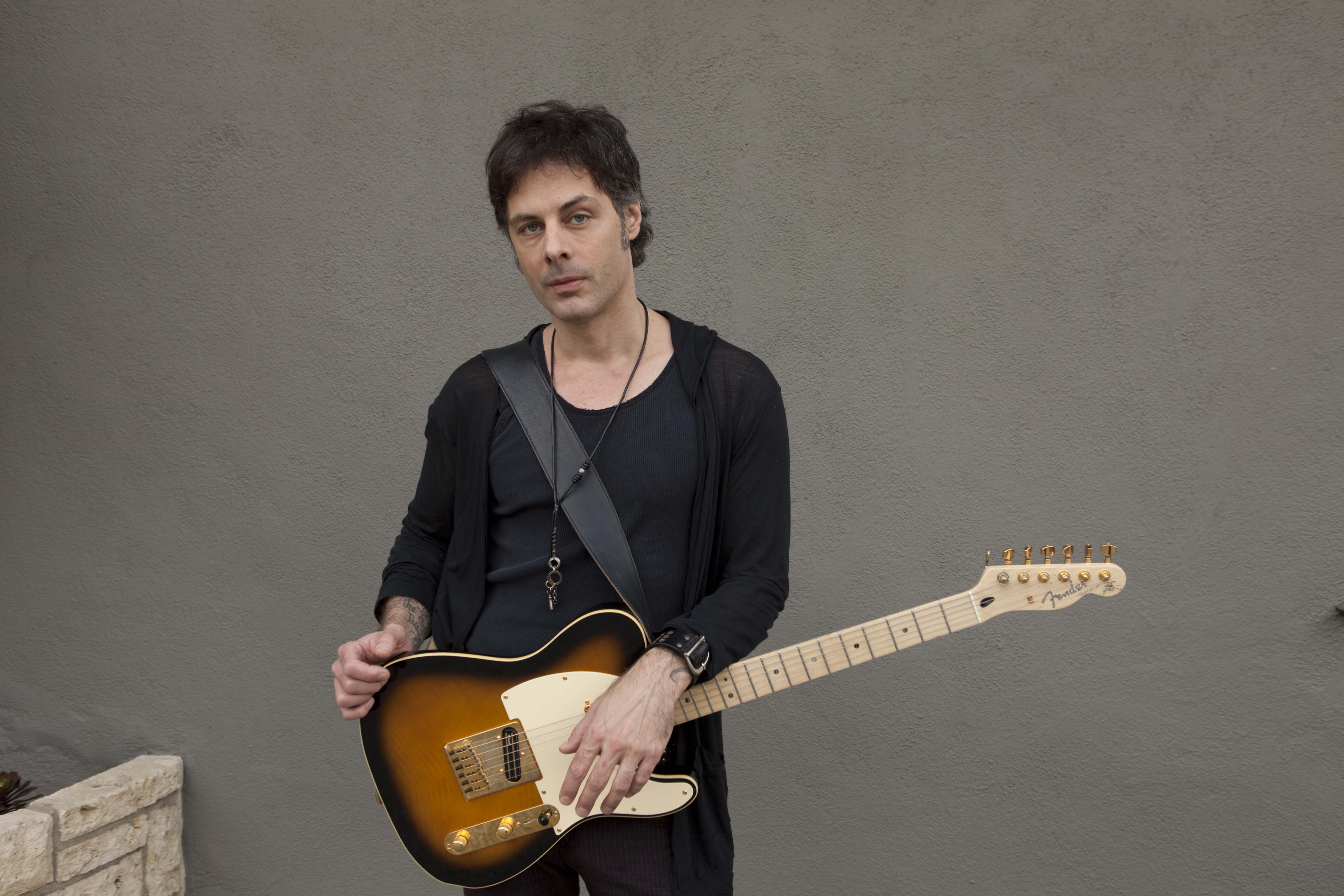

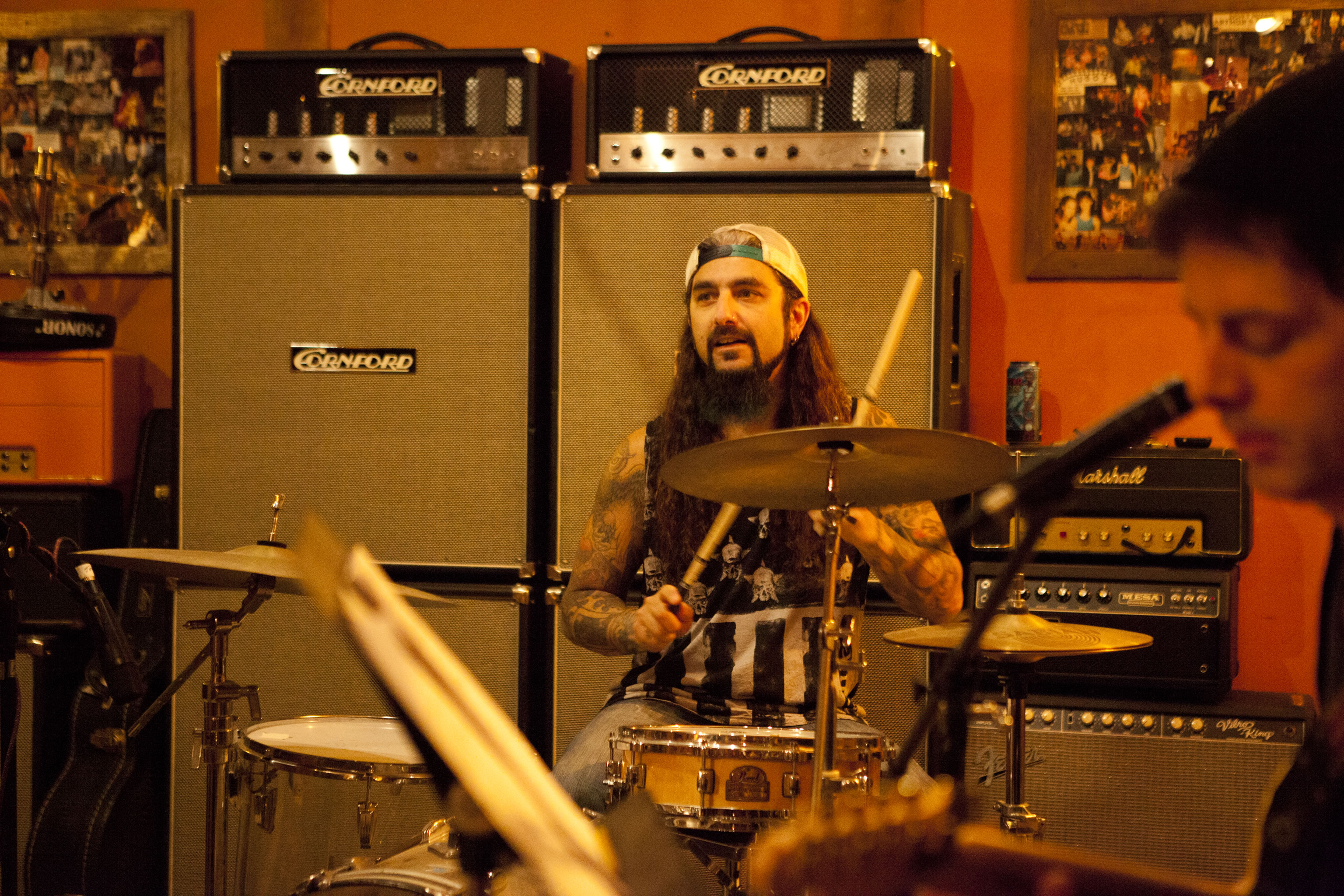
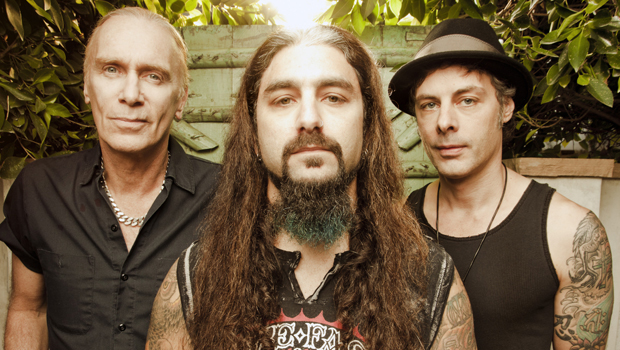
James is a guitarist and freelance writer who's interviewed some of the biggest names in music. He is the author of four books and his writing credits include work for Guitar World, AXS and Yahoo! as well as for his hometown newspaper where he writes on a variety of topics with both passion and humor. As a guitarist, he's performed everywhere from local bars and nightclubs to some of the biggest stages in front of thousands of music fans.
“My guitar tech ran in and said, ‘Hey, you want to meet Pete?’ I was too scared”: The Smithereens’ love affair with The Who goes way back – yet when guitarist Jim Babjak got the chance to meet Pete Townshend, he turned it down
“Every tour was the best I could have done. It was only after that I would listen to more Grateful Dead and realize I hadn’t come close”: John Mayer and Bob Weir reflect on 10 years of Dead & Company – and why the Sphere forced them to reassess everything
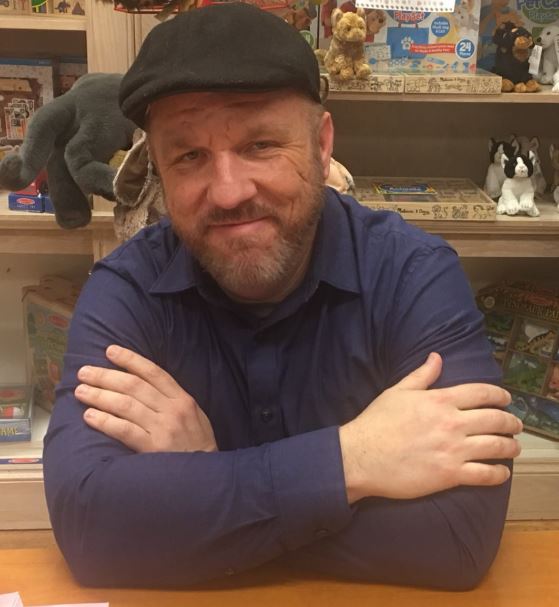

![John Mayer and Bob Weir [left] of Dead & Company photographed against a grey background. Mayer wears a blue overshirt and has his signature Silver Sky on his shoulder. Weir wears grey and a bolo tie.](https://cdn.mos.cms.futurecdn.net/C6niSAybzVCHoYcpJ8ZZgE.jpg)

![A black-and-white action shot of Sergeant Thunderhoof perform live: [from left] Mark Sayer, Dan Flitcroft, Jim Camp and Josh Gallop](https://cdn.mos.cms.futurecdn.net/am3UhJbsxAE239XRRZ8zC8.jpg)






